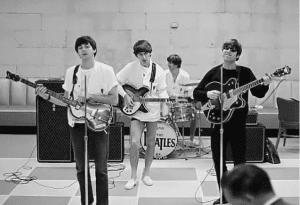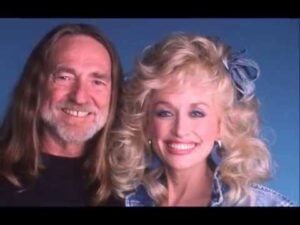Watch Joe Walsh And Eagles Perform “Funk#49”

via funky stuff / Youtube
In 1975, when Cameron Crowe, the writer, profiled Joe Walsh for Rolling Stone magazine, he described Joe as one of the finest guitarists in rock and roll. This accolade was well-deserved, as Joe had already gained admiration from guitar legends such as Eric Clapton and Jimmy Page.
This recognition occurred before Joe Walsh joined the Eagles and made unforgettable contributions to the American pop culture landscape through hits like “Hotel California” and “Life in the Fast Lane”.
His pre-Eagles band, the well-respected hard rock outfit James Gang, achieved moderate successes and scoring some hits for themselves. One of them was the beloved “Funk #49” which has become a concert favorite ever since Walsh joined the California rock icons.
Joe eventually left the band after their landmark 1971 live album, Live in Concert, recorded at New York City’s Carnegie Hall, where the James Gang became the first rock band ever to perform. Check out Eagles’ live version of “Funk #49” with the masterful Joe Walsh himself.
A showcase of Joe Walsh’s funky greatness
“Funk #49” is a composition co-authored by Joe Walsh, Jim Fox, and Dale Peters and was originally recorded by The James Gang as the lead single from their second studio album, James Gang Rides Again in 1970. It achieved moderate success, reaching the #59 spot on the Billboard Hot 100 chart.
With a duration of 3 minutes and 54 seconds, “Funk #49” features just two verses, with a significant portion of the song being instrumental, showcasing the talents of Joe Walsh on the guitar, Dale Peters on bass, and Jim Fox on the drums.
The lyrics revolve around a turbulent relationship with an untamable girlfriend. The song primarily serves as a platform for Joe Walsh’s exceptional guitar performance. The title of the song is a nod to “Funk #48”, a track from their debut album, Yer’ Album.
Walsh offered insight into the song’s creation, stating, “I came up with the basic guitar lick, and the words never really impressed me intellectually, but they seemed to fit somehow. It was a real good example of how we put things together, bearing in mind that it was a three piece group, and I don’t think that there was any overdubbing. The only thing we really added was the percussion middle part, which the three of us actually played, putting some parts on top of the drums, but that’s the three piece James Gang, and that’s the energy and kind of the symmetry we were all about.”
Joe Walsh’s Gang
Many might assume that Walsh was the founding member of the James Gang, given his immense fame as an alumnus of the group. However, the true founder of the band, which originated in Cleveland, Ohio, is drummer Jim Fox.
In the initial years of the band’s existence, the James Gang underwent numerous changes, with the lineup expanding to as many as five members at times. When 20-year-old Joe Walsh, hailing from Wichita, Kansas, joined the band in late 1967, they were still operating as a five-piece ensemble.
Subsequently, the James Gang transitioned into a quartet. Then, just before a crucial performance opening for Cream in Detroit in May 1968, another band member departed. At that juncture, Walsh, Fox, and bassist Tom Kriss performed as a trio, and they were pleased with the results. This incarnation of the group caught the attention of ABC Records and producer (and Eagles’ best sound engineer) Bill Szymczyk.
In March 1969, the James Gang unveiled Yer’ Album, showcasing their remarkable instrumental chemistry. The album is particularly known for its extended cover versions of Stephen Stills’ “Bluebird” and The Yardbirds’ “Lost Woman”.
Don Henley thought “wild” Joe won’t fit in Eagles
When Walsh joined the Eagles in 1975, one of the band’s lead vocalist and drummer Don Henley had concerns about his “wild” nature, which was quite different from the band’s easygoing, country-influenced style of classic rock.
Despite Joe’s larger-than-life personality and sharp wit, his remarkable guitar and vocal skills made his wild streak blend seamlessly with the Eagles’ sound.
This fusion even led to the incorporation of some of Joe’s songs originally written during his time with the James Gang, allowing Joe to shine while giving his bandmates a chance to showcase their versatility. In a 1976 concert in Seattle, fans had the opportunity to witness this harmonious blend when the Eagles delivered an electrifying rendition of “Funk #49”.
Don Felder and Glenn Frey provided rock-solid harmonies, complemented by Joe Walsh’s exceptional guitar work, while Don Henley, holding the rhythm from behind his drum kit, demonstrated his drumming prowess. Throughout, Joe remained a dynamic force, confidently taking the lead on his own composition within his new band, allowing his wild side to shine in the most captivating manner.
Joe still rocking even after Eagles fell apart (and reunited)
After Eagles disbanded in in 1980, the legendary guitarist’s musical journey continued through various solo albums and collaborations. His 1981 solo album, There Goes the Neighborhood, featured the beloved track “Life of Illusion”.
Despite personal struggles with drugs and alcohol in the following decade, Joe’s unwavering passion for music persisted. He released several albums, including You Bought It – You Name It (1983), The Confessor (1985), Got Any Gum? (1987), Ordinary Average Guy (1991), and Songs for a Dying Planet (1992). During this time, he collaborated with renowned artists and played a central role in the Eagles’ reunion in 1994.
The Eagles’ reformation, combined with Joe’s newfound sobriety since 1995, marked a prolific phase in his career. His collaboration with the band led to record-breaking tours, and their 2007 studio album, Long Road Out of Eden, achieved platinum status. In 1998, Joe, alongside the Eagles, was inducted into the Rock and Roll Hall of Fame. His active years included a James Gang reunion and the receipt of an Honorary Doctorate from Kent State University in 2001.
In 2012, Joe released Analog Man, his first solo album in 20 years, which received critical acclaim. He continued to collaborate, produce, and perform with iconic musicians. The following years brought numerous concerts, residencies, and accolades, as well as ongoing success with the Eagles, demonstrating that the Eagles were soaring to new heights with no signs of slowing down.













